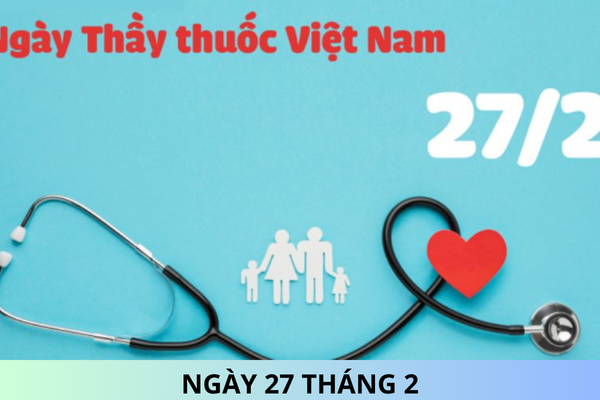Which agencies are responsible for food safety inspection in Vietnam?
Which agencies are responsible for food safety inspection in Vietnam? Which entities are not required to obtain the certificate of food safety in Vietnam? Thank you!
Which agencies are responsible for food safety inspection in Vietnam?
Pursuant to Article 4 of the Circular 48/2015/TT-BYT (amended by Clause 3 Article 5 of the Circular 17/2023/TT-BYT) stipulating food inspection agencies; responsibilities and powers of food inspection agencies and inspectorates as follows:
Food inspection agencies; responsibilities and powers of food inspection agencies and inspectorates.
1. Food inspection agencies:
a) The Department of Food Safety carries out the inspection of food safety nationwide.
b) The Departments of Health, Sub-Departments of Food Safety, food safety authorities of provinces and central-affiliated cities (hereinafter referred to as provinces) shall inspect food safety within their provinces;
c) People’s Committees of suburban districts, urban districts, towns, provincial cities, cities affiliated to central-affiliated cities (hereinafter referred to as districts) shall inspect food safety within their districts; the Health Committee Division, the Health Center, or a specialized agency shall assist the People’s Committee of district in inspecting food safety within the district.
d) People’s Committees of communes, the Public Health Stations of the wards shall responsible for inspecting food safety within their wards.
2. The competent authority of food safety inspection shall deliver its responsibilities and powers as regulated in Article 69 of the Law on Food Safety.
3. The inspectorate, appointed by the competent authority of food safety inspection, has its responsibility and power as regulated in Article 70 of the Law on Food Safety.
As regulations above, following agencies are responsible for food safety inspection in Vietnam:
- The Department of Food Safety carries out the inspection of food safety nationwide.
- The Departments of Health, Sub-Departments of Food Safety, food safety authorities of provinces shall inspect food safety within their provinces;
- People’s Committees of districts shall inspect food safety within their districts; the Health Committee Division, the Health Center, or a specialized agency shall assist the People’s Committee of district in inspecting food safety within the district.
- People’s Committees of communes, the Public Health Stations of the wards shall responsible for inspecting food safety within their wards.
Which agencies are responsible for food safety inspection in Vietnam? - image from internet
What are regulations on scope of food safety inspection at the food and beverage businesses in Vietnam?
Pursuant to Clause 2 Article 6 of the Circular 48/2015/TT-BYT (amended by Clause 4 and 5, Article 5 of the Circular 17/2023/TT-BYT) stipulating scope of food safety inspection as follows:
Scope of inspection
...
2. Food and beverage businesses and street food vendors.
a) Administrative records and legal certificates: Inspect according to point a clause 1 of this Article;
b) Records, documents and the conformity of the Owner; or workers who directly engaging in food production and trading, with the provisions of facility and equipment; the process of food production and processing; practices of food hygiene and safety; food transportation and preservation; sources of water used for food processing and production; the origin of food ingredients, substances and additives; sample storage and other relevant regulations.
c) Collect sample of food or ingredients for testing, if necessary.) Collect sample of food, food additives, food processing aids, and ingredients and products used for processing and eat for testing, if necessary. Comply with the regulations specified in point h clause 1 of this Article in the process of taking samples for testing.
As regulations above, the scope of food safety inspection at the food and beverage businesses in Vietnam include following contents:
- Administrative records and legal certificates of the businesses;
- Records, documents and the conformity of the Owner on following issues:
+ Conditions of the business, facilities and equipment;
+ Workers who directly engaging in food production and trading, with the provisions of facility and equipment.
+ The process of food production and processing;
+ Practices of food hygiene and safety; food transportation and preservation;
+ Sources of water used for food processing and production;
+ The origin of food ingredients, substances and additives;
+ Sample storage
+ Other relevant regulations.
- Collect sample of food or ingredients for testing, if necessary.) Collect sample of food, food additives, food processing aids, and ingredients and products used for processing and eat for testing, if necessary.
Which entities are not required to obtain the certificate of food safety in Vietnam?
Pursuant to Article 12 of the Decree 15/2018/ND-CP stipulating exemption from the certificate of food safety as follows:
Exemption from the certificate of food safety
1. The following entities are not required to obtain the certificate of food safety:
a) Micro food manufacturers;
b) Mobile food manufacturers and sellers;
c) Micro food processors;
d) Micro food sellers;
dd) Sellers of prepackaged foods;
e) Manufacturers and sellers of instruments and materials for wrapping and storing food;
g) Restaurants within hotels;
h) Industrial kitchens not registered as a food business;
i) Street food vendors;
k) Any food business that has one of the following certificates: GMP, HACCP, ISO 22000, IFS, BRC, FSSC 22000 or an equivalent certificate.
2. The entities mentioned in Clause 1 of this Article must satisfy corresponding food safety requirements.
As regulations above, the following entities are not required to obtain the certificate of food safety:
- Micro food manufacturers;
- Mobile food manufacturers and sellers;
- Micro food processors;
- Micro food sellers;
- Sellers of prepackaged foods;
- Manufacturers and sellers of instruments and materials for wrapping and storing food;
- Restaurants within hotels;
- Industrial kitchens not registered as a food business;
- Street food vendors;
- Any food business that has one of the following certificates: GMP, HACCP, ISO 22000, IFS, BRC, FSSC 22000 or an equivalent certificate.
Best regards!











